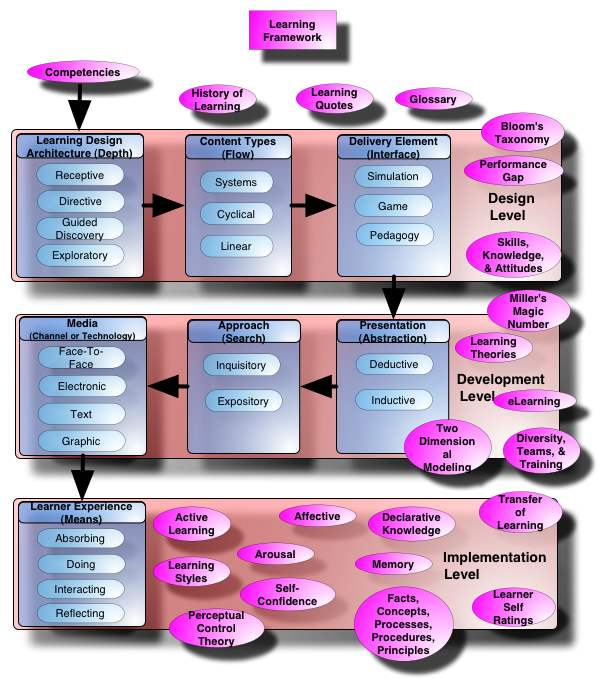Learning Outcomes
Most often we view results as the final outcome of an intervention that can easily be measured, such as reduced costs, customer satisfaction, improved quality, etc. However, often the results are going to be internal to the targeted individuals. These are known as learning outcomes or personal results.
Kraiger, et. el. (1993) proposed that learning during training may be classified into one of three types of outcomes: cognitive, skill-based, and affective. In addition, each type of outcome includes particular categories and foci of measurement (the focus is on two points):

These learning outcomes are important, for once they are identified, they can be used to develop instructional strategies and generate learning objectives. Note that learning outcomes are different from learning objectives. Learning outcomes reflect the goals of the instructional designer. In addition, they are linked to the design of the training. Whereas objectives specify what the learner will be able to accomplish after the completion of training.
Learning outcomes may developed by viewing them through three different perspectives:
- Examining the goals of training _ For example, is it for development or to correct a performance deficiencies.
- Identifying the instructional strategies - Such as coaching, exploration, or concept learning.
- Examining the performance domain - Such as looking at job descriptions, observing expert performers, or interviewing subject matter experts.
Reference
Kraiger, K., Ford, J. K., & Salas, E. (1993). "Application of cognitive, skill-based, and affective theories of learning outcomes to new methods of training evaluation." Journal of Applied Psychology, 78, 311-328.

